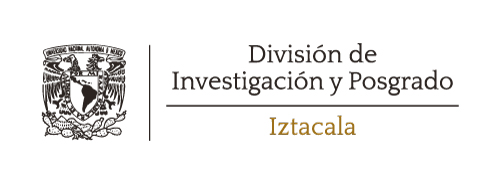
| Location within campus: | Research Unit in Biomedicine and National Laboratory in Health: Molecular Diagnosis and Environmental Effect in Chronic Degenerative Diseases (Building A4). |
| Phone: | 56231333 ext. 39788 |
| Head of Laboratory: | Dr. Felipe Vaca Paniagua Full Professor A felipe.vaca@iztacala.unam.mx |
| Researchers affiliated to the laboratory: | |
| Technicians affiliated to the laboratory: | Dr. Clara Estela Díaz Velásquez cdiazvelasquez@aol.com Dr. Aldo Hugo de la Cruz Montoya audelacm@gmail.com |
| Research lines per researcher: | Integrative genomics, susceptibility, and molecular biology of cancer. Genetics of hereditary breast and ovarian cancer. Advanced non-invasive detection and characterization of solid and liquid neoplasms at the molecular level. Microbial genomics of clinical species. |

Objective: The research of chronic degenerative and infectious diseases from a genomic, comprehensive, and interdisciplinary approach. We have four fundamental axes:
Molecular epidemiology of hereditary breast and ovarian cancer in populations from Mexico, Argentina, Guatemala, Peru, and Colombia. We analyze the interaction of risk factors, clinical and morbidity-mortality characteristics, along with molecular and genomic determinants, to establish and prioritize variables with diagnostic, prognostic, and predictive value. This effort has a profound impact on the care and prevention of this disease, providing social benefits reflected in improved survival possibilities for these patients and their families.
Comprehensive genomic characterization of benign and malignant tumor pathologies, considering their clinical presentation variables and histopathological classification, to promote the development of modern precision medicine approaches. We consider the interaction of molecular, genomic, expression, and epigenetic alterations to identify composite molecular markers.
Genomic analysis of infectious diseases to characterize the composition of microbial communities, determinants of pathogenicity, ecological interaction among pathogenic species, as well as the implication of clinical-epidemiological and molecular features in the disease.
Participation in the integration of interdisciplinary research groups. By collaborating with psychologists, oncologists, surgeons, pathologists, epidemiologists, biologists, geneticists, mathematicians, bioinformaticians, immunologists, dentists, parasitologists, and virologists, we engage in international research consortia.

Couraud, S., Vaca-Paniagua, F., Villar, S., Oliver, J., Schuster, T., & Blanche, H. et al. (2014). Noninvasive Diagnosis of Actionable Mutations by Deep Sequencing of Circulating Free DNA in Lung Cancer from Never-Smokers: A Proof-of-Concept Study from BioCAST/IFCT-1002. Clinical Cancer Research, 20(17), 4613-4624. doi: 10.1158/1078-0432.ccr-13-3063
Oliver, J., Quezada Urban, R., Franco Cortés, C., Díaz Velásquez, C., Montealegre Paez, A., & Pacheco-Orozco, R. et al. (2019). Latin American Study of Hereditary Breast and Ovarian Cancer LACAM: A Genomic Epidemiology Approach. Frontiers In Oncology, 9. doi: 10.3389/fonc.2019.01429
Quezada Urban, R., Díaz Velásquez, C., Gitler, R., Rojo Castillo, M., Sirota Toporek, M., & Figueroa Morales, A. et al. (2018). Comprehensive Analysis of Germline Variants in Mexican Patients with Hereditary Breast and Ovarian Cancer Susceptibility. Cancers, 10(10), 361. doi: 10.3390/cancers10100361
Vaca-Paniagua, F., Alvarez-Gomez, R., Maldonado-Martínez, H., Pérez-Plasencia, C., Fragoso-Ontiveros, V., & Lasa-Gonsebatt, F. et al. (2015). Revealing the Molecular Portrait of Triple Negative Breast Tumors in an Understudied Population through Omics Analysis of Formalin-Fixed and Paraffin-Embedded Tissues. PLOS ONE, 10(5), e0126762. doi: 10.1371/journal.pone.0126762
Vaca-Paniagua, F., Oliver, J., da Costa, A., Merle, P., McKay, J., Herceg, Z., & Holmila, R. (2015). Targeted deep DNA methylation analysis of circulating cell-free DNA in plasma using massively parallel semiconductor sequencing. Epigenomics, 7(3), 353-362. doi: 10.2217/epi.14.94

| Entry profile of potential thesis students: | Students from related fields such as biology, medicine, pharmaceutical chemistry, bioinformatics, informatics, genomics, and health. |
| Service Social Data: | Molecular and phenotypic analysis of oncogenic processes and drug sensitivity in patients and in in vitro and in vivo cancer models, as well as the identification of molecules with potential cancer biomarker properties. Registration Key: 2020-12/63-74 Activities: Conducting experiments in molecular biology and cell biology, performing bioinformatics analyses on genomics, analyzing molecular signatures, and examining mutational signatures in malignant and benign tumors. |
